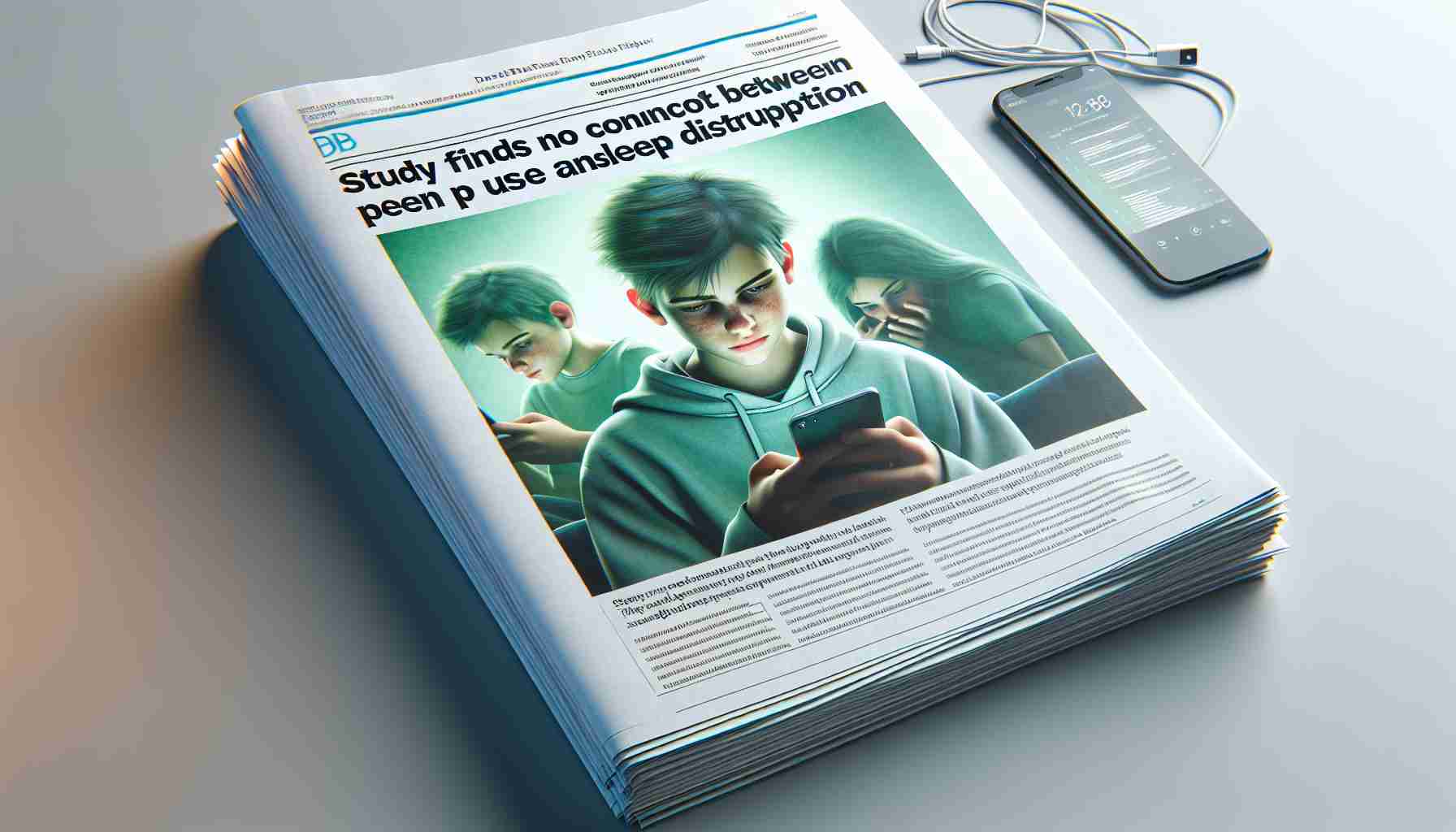Researchers disprove the myth that using mobile phones in the evening and at night can disrupt sleep patterns among teenagers. Despite widespread studies linking smartphone use to sleep disturbances, Czech scientists embarked on a new study to investigate the impact.
In a fresh investigation conducted by the University of Masaryk in the Czech Republic, 203 Czech teenagers aged 13 to 17 participated by installing a specially designed app on their smartphones. The app collected data on device usage for 14 days. The scientists then analyzed how the duration and timing of phone usage correlated with overall sleep duration, quality, and daily levels of sleepiness.
Contrary to expectations, the researchers did not find any connection between the time spent using smartphones and an increased risk of sleep disruptions. Any reported drowsiness among participants was attributed to a reduction in total sleep time, possibly due to staying up late using their phones. However, inadequate sleep could arise from various other factors unrelated to late-night gadget usage.
This study indicates that, at least among the surveyed group, using smartphones before bedtime did not impact sleep negatively, challenging the commonly held belief that nighttime phone use hinders a good night’s rest for adolescents.
Additional Facts:
– Blue light emitted by screens can disrupt the body’s natural sleep-wake cycle, but this study did not find a direct link between smartphone use and sleep disruption.
– Other factors such as stress, caffeine consumption, and inconsistent sleep schedules can also contribute to sleep disturbances among teenagers.
– Establishing a bedtime routine and creating a sleep-friendly environment can help improve sleep quality regardless of smartphone use.
Most Important Questions:
1. How do different types of smartphone activities, such as social media usage or gaming, impact sleep patterns among teenagers?
2. Are there long-term effects of using smartphones before bedtime on overall sleep health?
3. How do cultural differences in smartphone use and bedtime habits influence sleep quality among adolescents?
Key Challenges/Controversies:
– The reliance on self-reported data in many studies on phone use and sleep may introduce bias and inaccuracies.
– There is a constant evolution in smartphone technology and usage patterns, making it challenging to draw definitive conclusions about the impact on sleep.
Advantages:
– Provides reassurance to parents and teenagers that occasional smartphone use before bedtime may not always disrupt sleep.
– Encourages further research into the specific factors that influence sleep quality in adolescents beyond smartphone use.
Disadvantages:
– Findings may not be generalizable to all teenagers given variations in sleep patterns and smartphone habits.
– This study’s results may lead to complacency regarding healthy sleep habits despite other potential sleep disruptors.
Suggested Related Links:
– Sleep Foundation
– PubMed
